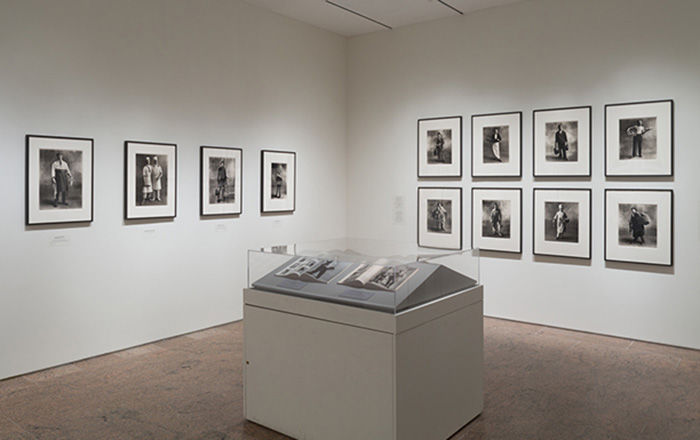[Cotton Pickers with Knee Pads, Lehi, Arkansas]
Russell Lee American
Not on view
This Depression-era photograph by Russell Lee is from the collection of Richard Wright, the African-American writer who helped redefine discussions of race relations in America in the mid-twentieth century. In Wright's photo-text book 12 Million Black Voices: A Folk History of the Negro in the United States (1941), the acclaimed author of Native Son and Black Boy combined New Deal photographs with his own writings and traced the history of African Americans from slavery, through emancipation, sharecropping (serfdom), and northern migration, to what the author described as the present joblessness and racial prejudice. The book serves as a troubling counterpoint to Let Us Now Praise Famous Men, Walker Evans' and James Agee's contemporary study of white cotton tenant farmers in Alabama. The book's photographs, such as this one of cotton pickers, present divergent views of the African-American experience by ten of the finest artists working with the camera during the Depression.
While many of the most famous Depression-era photographs, such as Dorothea Lange’s Migrant Mother, draw attention to the faces of their subjects to provoke empathy, this photograph by Russell Lee isolates the legs and feet of two cotton pickers to suggest their impoverished states. Wearing torn and dirty pants, the workers make due with improvised and inadequate equipment, using rags wrapped with twine as kneepads and straps of cloth to hold together their broken shoes.
This image cannot be enlarged, viewed at full screen, or downloaded.
![[Cotton Pickers with Knee Pads, Lehi, Arkansas], Russell Lee (American, 1903–1986), Gelatin silver print](https://images.metmuseum.org/CRDImages/ph/web-additional/DP109609.jpg)
